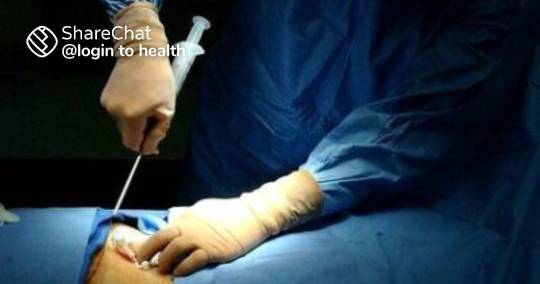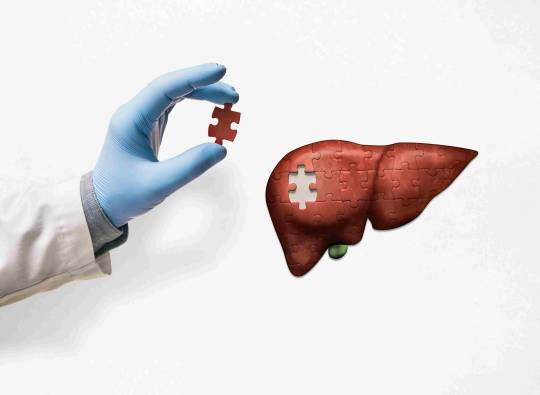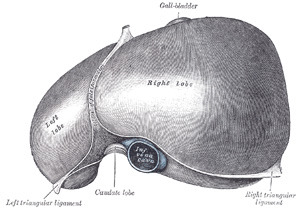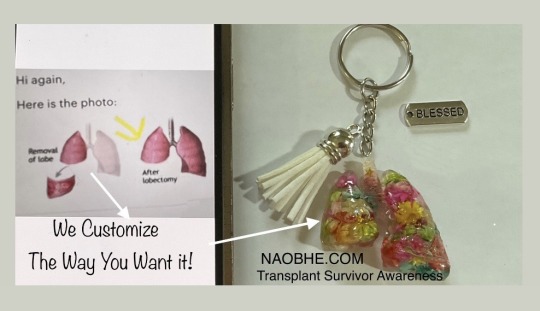#liver donor
Text

Advantages of robot-assisted liver transplant surgery are:
• Enhanced Surgical Precision and Visual Clarity: The combination of magnified imagery and precise control empowers surgeons to perform intricate tasks with remarkable accuracy, minimizing the risk of unintended harm to crucial structures.
• Reduced Impact on Tissues: Robotic-assisted procedures utilize smaller incisions, leading to less blood loss, decreased tissue trauma, and lower post-operative discomfort. This ultimately facilitates a speedier recovery process.
• Quicker Healing Process: Patients who undergo robot-assisted liver transplant surgery often experience shorter hospital stays and faster recuperation times, enabling them to resume their normal activities sooner.
• Lower Infection Rates: The use of smaller incisions inherently lowers the probability of infections, contributing significantly to overall improved liver transplant results.
• Preservation of Healthy Tissue: The precision of robotic arms empowers surgeons to better preserve healthy tissue, leading to enhanced organ functionality and fewer complications after surgery.
• Personalized Approach: Robotic systems can be customized to suit each patient's unique anatomical differences, ensuring a tailored and optimized surgical strategy.
• Reduced Need for Blood Transfusions: Precise surgical techniques often result in less blood loss, translating to fewer instances of blood transfusions required during the surgical procedure.
• Improved Cosmetic Results: The use of smaller incisions leads to improved cosmetic outcomes, which could potentially boost patient contentment and body image.
The liver transplant cost for a robot-assisted procedure is comparatively more than a conventional liver transplant procedure. However, considering the above advantages of a robotic-assisted procedure, many patients are opting for this method.
Not all cities in India have the facility of a robotic-assisted medical procedure, as it needs the latest technology and equipment which is not available everywhere. Mumbai is one of the best healthcare cities in India and has many experienced doctors and well-equipped hospitals to carry out this procedure comfortably.
The cost of liver transplant in Mumbai may be slightly more than the other cities due to the availability of these facilities, but it also has some of the best success rates in the country.
#liver transplant#liver transplantation#liver donor#liver transplant cost#liver diseases#liver failure#cost of liver transplant#cost of liver transplant in Mumbai
0 notes
Text

The survival rate after a liver transplant varies depending on several factors, such as the individual's overall health, the reason for the transplant, and how well the body accepts the new liver.
Generally, the survival rates are quite promising. Many liver transplant recipients can live for many years after the procedure, and some have even been able to live decades with a healthy transplanted liver.
However, it's essential to follow the recommended post-transplant care and take immunosuppressive medications to prevent organ rejection and ensure long-term success.
Liver transplant depends on various factors, including:
Severity of Liver Disease: The primary reason for a liver transplant is often severe liver disease or end-stage liver failure.
Medical Eligibility: The candidate's overall health and medical condition will be evaluated to determine if they are physically fit for the surgery and post-transplant care.
Liver Transplant Evaluation: Comprehensive medical and psychological evaluations are conducted to assess the patient's suitability for transplantation.
MELD Score: The Model for End-Stage Liver Disease (MELD) score is used to prioritize patients on the transplant waiting list based on the severity of their liver disease.
Availability of Donor Liver: The availability of a suitable donor liver is a critical factor. It can come from a deceased donor or a living donor.
Blood Type Compatibility: The donor's and recipient's blood types need to be compatible to minimize the risk of rejection.
Cross-Match Compatibility: A cross-match test is performed to check if the recipient's immune system will react to the donor liver.
Age: Age is a factor in determining transplant candidacy, but it's not the sole criterion.
Support System: Having a strong support system and adherence to post-transplant care instructions are essential for successful outcomes.
Alcohol and Drug Use: Candidates must demonstrate a commitment to abstaining from alcohol and drug use post-transplant
The final decision for liver transplantation is made by a multidisciplinary team of medical professionals after considering all these factors to ensure the best possible outcome for the patient.
There are some best hospitals in Mumbai like H N Reliance Hospital Mumbai where advanced liver failure treatment, liver cancer treatment, liver cirrhosis treatment and liver transplant treatment is done with great success. You can book an appointment at the hospital also to know more about the cost of liver failure treatment, cost of liver transplant in Mumbai, cost of other liver disease treatment.
#liver cirrhosis#liver failure#liver donor#liver transplant#fatty liver#non- fatty liver disease#World Hepatitis Day
0 notes
Text
Learn About different Types of Liver Transplant | Medanta

Deceased liver donor and living liver donor are 2 different types of Liver Transplantation. Know about eligibility criteria & cost of liver transplantation.
0 notes
Text
Marine Donates Half His Liver To Total Stranger
A U.S. Marine donates half his liver to a complete stranger battling liver disease. When Corey Weber learned that you could donate a portion of your liver to save someone’s life, he started filling out the paperwork to become a living donor. In the middle of his application process, his wife shared the story of a woman who lived in their town, Katie Sproull. She’s a mother of two who was battling chronic liver disease, desperately needed a new liver, and just happened to be O negative blood type, the same as Corey.
After a series of tests, Corey was found to be a perfect match and cleared to donate a portion of his liver. He went out to dinner with Katie so they could meet and two weeks later they had the procedure done. They both spent less than a week in the hospital and Katie reports that she’s feeling great and already symptoms she’s been struggling with for years have cleared up.
Medical experts say that the liver can fully regenerate for both the donor and the recipient. Corey’s liver is expected to be back to full-size within two months and Katie’s within three. The two hope their story will inspire others to consider being a living donor. "There are thousands of people that die on [the donor] list every year and there are billions of people out there with healthy livers," says Katie. "Nobody has to be on that list, there doesn't even need to be a list."
Source: WTAE

#Good News#GoodNews#Marines#Marine#Live Donor#Living Donation#Organ Donor#Liver Donor#life saver#Good Samaritan#kindness#generosity#liver disease
0 notes
Text
Man becomes eligible to be living liver donor for dad after a nearly 300-pound weight loss
Man becomes eligible to be living liver donor for dad after a nearly 300-pound weight loss
If there’s one person in the world that Colton Lowe looks up to the most, it’s his father, Edward Lowe.
The pair share a great bond, with Edward having taught Colton everything he knows about cars—a hobby they both share to this day.
In February, Colton, 23, learned that his dad was diagnosed with Stage 4 liver failure. Upon hearing the sad news, he immediately thought of ways to help his best…

View On WordPress
0 notes
Text




Was really feeling myself today.
#personal#myself#me#my face#selfie#liver transplant#organ donation#organ donor#organ transplant#words#girls with red hair#girls with tattoos#sober journey#soberliving#sober#sob
24 notes
·
View notes
Text
its not just abortions some of my coworkers have an issue with, I get a lot of sideyes at work for the procurement work I do too. I don't really mind it personally but it does bother me on behalf of the patients. You're not going to at least respect the incredible gift being given here? No recognition or appreciation for this tremendous decision made by the patient or the (grieving!) families? no acknowledgment of the importance of postmortem care? especially makes no sense coming from transplant staff. cant do any transplants without us! where do you think this organ is coming from?
#*living kidney donor and liver lobe donors notwithstanding#care doesn't stop when the pt dies! get your heads out of your assess!#cor.txt
3 notes
·
View notes
Text
like personally i hate john winchester's guts and i do not enjoy the 'apologist' takes. if you find jdm or john as characters attractive fair enough but man. i hate that old man. he has far too much in common both looks and personality wise with my own shitty father for me to ever find him remotely likeable.
but he did love sam and dean. my own dad loved me and my brother too. but he wasn't a good parent and he didn't even really try to be, and all the love in the world couldn't have fixed the fuck ups he made. same goes for john. and he could have, and should have, known better. he had options and he refused to take them.
those kids being raised by bobby, who himself wouldn't have been a perfect dad, would have still been far better than the way john did it.
#my post#as a former eldest daughter now son who experienced covert incest? yeah john is a very safe character for me to take out my feelings on#bc it's not like my actual dad is going to ever feel sorry#he contacted my brother and i last year bc his liver is failing and my first thought was legit#'oh so this is the organ donor match check in huh'
3 notes
·
View notes
Text
We’re supporting human organ transplant survivors, organ surgery recipients, organ donors. Safe Life!

#organ donor#bone marrow transplant#heart transplant#kidney transplant#liver transplant#lung transplant#organ donors#organ transplant#transplant#transplantation#transplant survivors#Spotify
3 notes
·
View notes
Text
so much wine to drink, so little time.
Everyone under 30, prepare to be faced with the brutal realization that hard liquor may no longer allow you to function once you hit the tertiary age bracket.
I had one of those microscopically small bottles of rum, the ones you see people on episodes of intervention scramble for at 6am when the real stores are still closed, and even that produced a level of dehydration and fatigue that made me nearly crash my car the day after
additionally, your hangovers can and will last two days, minimum. Be warned, take advice from an elder, an expert in the field, a seasoned veteran of the sport of swimming in brown water
you will know death, and it laughs in the face of your agony. you will look in the mirror and the abyss will stare back.
smoking a cigarette with a tremored hand is not as amorously enticing as pictures of guys with tattoos makes it look
#beer guts are a byproduct of wanting to relive your 20s#i would sign the organ donor card but my liver at this point is damaged goods#might as well throw it off a truck#it might come out cleaner#thank god i'm neurotic as fuck and have adhd#i'd be a full blown addict by now otherwise
3 notes
·
View notes
Text

The liver transplant procedure requires precise execution, with the surgical team meticulously performing each step. The damaged liver is delicately removed to minimize harm to surrounding organs and tissues. Subsequently, a healthy liver from either a living donor or deceased donor is transplanted to the recipient, and the surgical team skillfully connects the blood vessels and bile ducts to ensure proper function. Advanced imaging technology and state-of-the-art surgical tools are utilized to enhance precision and increase the likelihood of a successful liver transplant procedure.
Following the transplant, careful management is crucial in the post-transplant phase to prevent organ rejection and identify potential complications. Immunosuppressant medications are employed as the primary defense against rejection by suppressing the recipient's immune response. Dosage adjustments are made to reduce infection risks and prevent rejection. During the early recovery period, intensive care unit monitoring aids in timely detection and management of complications, while infection control measures safeguard the new liver from potential infections.
The recovery process after a liver transplant is gradual, and patients may spend several weeks in the hospital. The medical team offers comprehensive support, managing post-surgical pain with appropriate medications and addressing any complications that may arise. Proper nutrition is essential for aiding recovery and promoting healing. Individualized physical therapy and rehabilitation programs assist patients in regaining strength and mobility. Emotional support and counseling are also provided to recipients and their families, helping them navigate post-transplant challenges with a positive outlook.
If you are suffering from a severe end-stage liver disease or liver failure, you may need to undergo a liver transplantation procedure.
There are many good hospitals and doctors in Mumbai who can perform the procedure successfully for you. The cost of liver transplant in Mumbai generally varies depending on the choice of doctor and hospital, the condition of the patient, and type of procedure being performed.
#liver transplant#liver donor#living liver donor#end-stage liver disease#liver failure#liver transplant procedure#liver transplant surgery#liver cancer#cirrhosis#fatty liver
0 notes
Text

Preventing fatty liver disease involves making healthy lifestyle choices and managing risk factors. Fatty liver disease can be of two types: alcoholic fatty liver disease (AFLD) and non-alcoholic fatty liver disease (NAFLD). Here are some general tips to help prevent both types:
Limit alcohol consumption: If you consume alcohol, do so in moderation. For men, this means up to two drinks per day, and for women, up to one drink per day. However, it's even better to avoid alcohol altogether to reduce the risk of AFLD.
Maintain a healthy diet: Focus on a balanced diet that includes plenty of fruits, vegetables, whole grains, lean proteins, and healthy fats. Limit your intake of processed foods, sugary beverages, and saturated and trans fats.
Control your weight: Obesity and overweight are significant risk factors for fatty liver disease. Aim to achieve and maintain a healthy weight through a combination of a nutritious diet and regular physical activity.
Exercise regularly: Engage in moderate-intensity aerobic activity (like brisk walking, cycling, or swimming) for at least 150 minutes per week, along with muscle-strengthening activities on two or more days per week.
Watch your cholesterol levels: High cholesterol levels can contribute to the development of fatty liver disease. Monitor your cholesterol levels and follow your doctor's recommendations to keep them within a healthy range.
Manage diabetes and insulin resistance: If you have diabetes or insulin resistance, work with your healthcare provider to manage your blood sugar levels effectively.
Avoid rapid weight loss: If you need to lose weight, do so gradually and in a healthy manner. Rapid weight loss can contribute to the accumulation of fat in the liver.
Be cautious with medications: Some medications can be harmful to the liver. Always follow your doctor's advice and never mix medications with alcohol.
Avoid unnecessary supplements and herbal products: Certain supplements and herbal products may not be safe for the liver. Consult your doctor before taking any new supplements.
Get vaccinated against hepatitis: Hepatitis infections can damage the liver, so getting vaccinated against hepatitis A and B can reduce your risk.
Regular medical check-ups: Regularly visit your healthcare provider for routine check-ups and screenings. Early detection and intervention can make a significant difference.
Fatty liver disease may lead to liver failure that requires treatment immediately, like liver transplant. There are many hospitals in Bangalore like Manipal Hospital Old Airport Road, where liver transplant is done with great success, and will give you the best knowledge about liver transplant procedure, cost of liver transplant in Bangalore, and other doubts on liver transplant. The specialists in the hospital will help you correctly diagnose the degree of liver damage, and preventive methods for fatty liver, and will guide you toward correct treatment plan.
0 notes
Text
was about to say "I want whichever anthropologist or whatever digs up my skeleton is confused by me" but then I remember that I will, hopefully, have my ashes mixed in with animal feed
#rox rumblings#me things#fuck getting a several thousand dollar funeral. feed me to the horses#they can lick the block of molasses and rox and seed#mark my words if somebody tries to buy me a grave plot I WILL come back from the grave to haunt them.#1. it's terrible for the environment 2. it's expensive 3. things may come up that makes it harder bc im trans and fat#whatever is most beneficial to the eqrth and least costly do that to me. keep some bones if you want#idk how much of my organs will be mixed in bc i fully intend on being a donor but you can grab my liver and pickle it or smth#my body is temporary. as we all are. take gamgam rox's tibia#ask to tag#jic? ik this can upset people
10 notes
·
View notes
Text
Exploring the Interplay Between Diseases and Liver Transplant
Understanding the Complexities and Implications
Liver transplant surgery is a life-saving procedure that offers hope to patients with end-stage liver disease and certain liver-related conditions. However, the decision to undergo a liver transplant is often influenced by the underlying disease or condition that necessitates the procedure. In this article, we delve into the intricate connection between diseases and liver transplants, exploring the complexities, implications, and considerations involved.

Liver Diseases Leading to Transplant: Liver transplant is commonly indicated for patients with end-stage liver disease (ESLD), a condition characterized by irreversible liver damage and loss of function. Chronic liver diseases such as cirrhosis, hepatitis B and C, alcoholic liver disease, non-alcoholic fatty liver disease (NAFLD), and autoimmune hepatitis are among the primary causes of ESLD. These diseases progress over time, leading to liver failure and ultimately necessitating a transplant to restore liver function and prolong survival.
Hepatobiliary Cancers: Hepatocellular carcinoma (HCC), the most common type of liver cancer, often develops in the setting of chronic liver disease or cirrhosis. In cases where the cancer is confined to the liver and has not spread beyond, liver transplant may be considered as a curative treatment option. However, stringent criteria and careful patient selection are essential to ensure favorable outcomes and prevent cancer recurrence post-transplant.
Metabolic Liver Diseases: Inherited metabolic disorders such as Wilson's disease, hemochromatosis, and alpha-1 antitrypsin deficiency can affect liver function and lead to progressive liver damage. For patients with severe and unmanageable symptoms, liver transplant may offer a chance for improved quality of life and long-term survival. However, the presence of underlying metabolic abnormalities may pose challenges during the transplant process and require specialized pre-transplant evaluation and management.
Acute Liver Failure: Acute liver failure (ALF) is a rare but life-threatening condition characterized by rapid onset of liver dysfunction and hepatic encephalopathy. Causes of ALF include viral hepatitis, drug-induced liver injury, autoimmune hepatitis, and acute fatty liver of pregnancy, among others. Liver transplant may be considered for select patients with ALF who fail to respond to medical therapy or develop complications such as hepatic coma. Timely referral and evaluation are crucial in optimizing outcomes for these patients.
Autoimmune Liver Diseases: Autoimmune liver diseases, including autoimmune hepatitis, primary biliary cholangitis (formerly known as primary biliary cirrhosis), and primary sclerosing cholangitis, are characterized by immune-mediated damage to the liver and biliary tract. While medical therapy is the mainstay of treatment for most patients, those with advanced disease and progressive liver failure may require liver transplant as a definitive treatment option. Careful management of post-transplant immunosuppression is essential to prevent disease recurrence and graft rejection.
Challenges and Considerations: Despite the potential benefits, liver transplant poses inherent challenges and considerations, particularly in the context of underlying diseases. Patient selection, pre-transplant evaluation, and post-transplant management require a multidisciplinary approach involving hepatologists, transplant surgeons, oncologists, and other specialists. Additionally, the shortage of donor organs, immunosuppression-related complications, and the risk of disease recurrence post-transplant are important factors to consider when weighing the risks and benefits of liver transplant in patients with underlying diseases.
The interplay between diseases and liver transplant is multifaceted and complex, with diverse implications for patient management and outcomes. While liver disease treatment in Bangalore, offers a lifeline to patients with end-stage liver disease, hepatobiliary cancers, metabolic disorders, acute liver failure, and autoimmune liver diseases, careful consideration of the underlying disease, patient characteristics, and transplant-related factors is essential in optimizing outcomes and ensuring long-term success. Through continued research, innovation, and collaboration, clinicians and researchers strive to advance our understanding of this intricate connection and improve the care and outcomes of patients undergoing liver transplant for various diseases.
Let’s know what are approaches taken to Liver transplant
Deceased Donor Liver Transplantation (DDLT) and Living Donor Liver Transplantation (LDLT) are two approaches to liver transplantation, each with its own distinct characteristics and considerations.

Donor Source:
Deceased Donor Liver Transplantation: Deceased Donor Liver Transplantation in Bangalore, the liver is procured from a deceased donor who has been declared brain-dead and has consented to organ donation either during their lifetime or by their family after death.
Living Donor Liver Transplantation: In Living Donor Liver Transplantation, the liver is donated by a living donor, typically a family member or close relative of the recipient. The donor undergoes a thorough evaluation process to assess their suitability for donation, including medical, psychological, and ethical considerations.
Timing of Transplantation:
Deceased Donor Liver Transplantation: The timing of Deceased Donor Liver Transplantation depends on the availability of deceased donor organs, which can vary depending on factors such as organ donation rates, waitlist prioritization, and organ allocation policies.
Living Donor Liver Transplantation: Living Donor Liver Transplantation offers the advantage of scheduling the transplant at a time that is convenient for both the recipient and the donor, minimizing the risk of disease progression and optimizing outcomes for both parties.
Graft Size and Compatibility:
Deceased Donor Liver Transplantation: The size and compatibility of the deceased donor liver may not always match the recipient's requirements, leading to potential mismatches in size or blood type. This can sometimes result in a longer wait time on the transplant waitlist or the need for additional surgical techniques to adapt the donor liver to the recipient's anatomy.
Living Donor Liver Transplantation: Living Donor Liver Transplantation allows for a more tailored approach to graft selection, as the donor liver can be selected based on size, blood type compatibility, and other factors specific to the recipient's needs. This often results in a better match and reduces the risk of graft rejection or complications post-transplant.
Waiting Time and Urgency:
Deceased Donor Liver Transplantation: Due to the limited availability of deceased donor organs, patients awaiting Deceased Donor Liver Transplantation may experience longer wait times on the transplant waitlist, particularly for those with less severe illness or lower priority status.
Living Donor Liver Transplantation: Living Donor Liver Transplantation offers the advantage of shorter waiting times, as the transplant can be scheduled based on the recipient's clinical status and urgency of need. This can be particularly beneficial for patients with rapidly progressive liver disease or acute liver failure who may not have the luxury of waiting for a deceased donor organ.
Risk to Donor:
Deceased Donor Liver Transplantation: There is no risk to the donor in Deceased Donor Liver Transplantation, as the liver is procured from a deceased donor who has already passed away.
Living Donor Liver Transplantation: Living Donor Liver Transplantation carries inherent risks to the living donor, including potential complications related to the surgical procedure, anesthesia, and recovery process. However, advances in surgical techniques and donor selection criteria have significantly reduced the risk of complications for living donors in recent years.
while both Deceased Donor Liver Transplantation and Living Donor Liver Transplantation in Bangalore, offer life-saving options for patients with end-stage liver disease, each approach has its own unique characteristics, considerations, and advantages. The choice between Deceased Donor Liver Transplantation and Living Donor Liver Transplantation depends on various factors, including the recipient's clinical status, urgency of need, compatibility, and availability of suitable donor organs. Ultimately, the goal of liver transplantation is to provide the best possible outcome for the recipient while ensuring the safety and well-being of the donor.
For details get the specialists for the Best Liver Transplant Center in Bangalore
#fatty liver treatment in Bangalore#Liver inflammation treatment in Bangalore#Liver disease treatment in Bangalore#Liver transplantation surgery in Bangalore#Deceased Donor Liver Transplantation in Bangalore#Living Donor Liver Transplantation in Bangalore#best liver transplant center in Bangalore#fatty liver#liver treatment center#liver treatment#fastrecoveryoffattyliver#liver care center Bangalore
0 notes